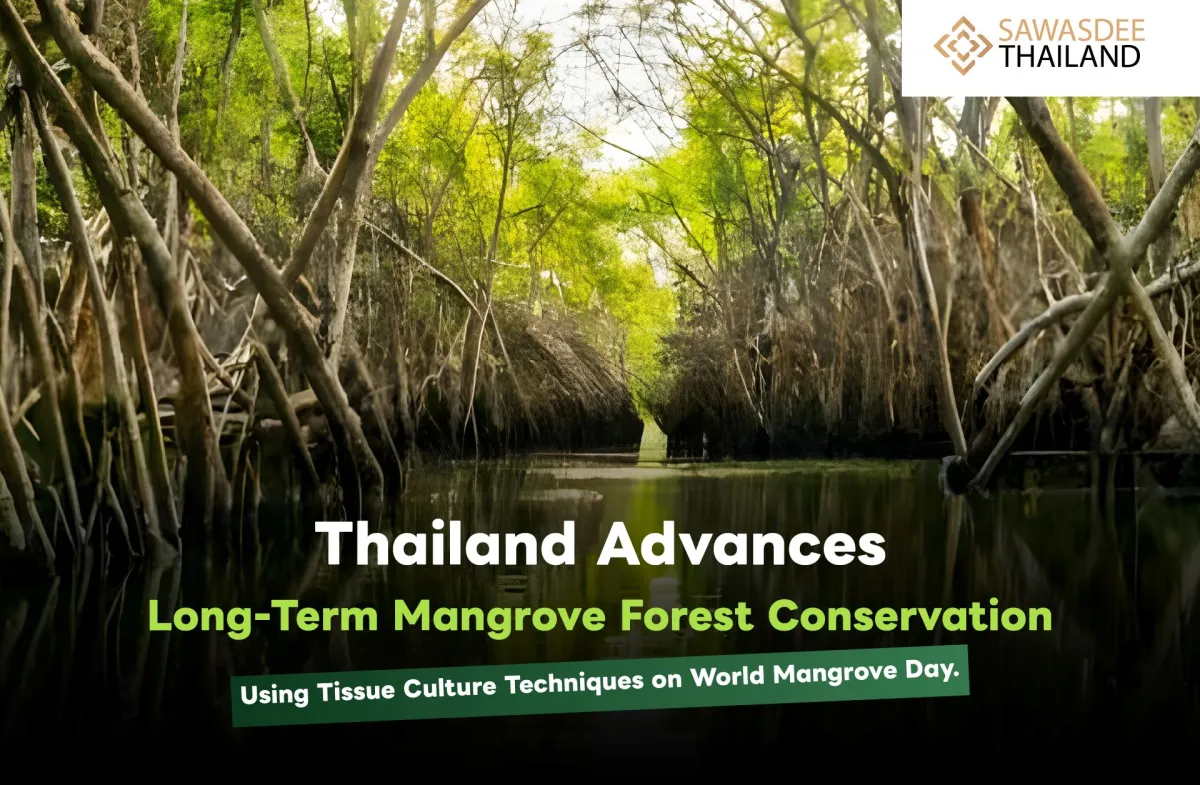
July 26 each year is the “International Day for the Conservation of the Mangrove Ecosystem,” commonly referred to as “World Mangrove Day.” This day aims to raise awareness of the importance of mangrove forests.
Mangrove forests serve as nurseries for aquatic animals in the ecosystem, connecting the sea with the land.
They are a source of food and help reduce the severity of natural disasters.
The National Science and Technology Development Agency (NSTDA), through the National Biobank of Thailand (NBT) and the National Center for Genetic Engineering and Biotechnology (BIOTEC), has collaborated with the Department of Marine and Coastal Resources (DMCR) to develop a project for the conservation of mangrove plant genetics through tissue culture.
This technique can effectively increase the number of plants and preserve plant genetics in a sterile condition.
This method allows for the production of disease-free seedlings that are genetically identical to the parent plants and is suitable for preserving recalcitrant seed plants that cannot be stored in frozen conditions.
Tissue culture of mangrove plants remains a scientific challenge, as each species requires a specific suitable environment and has a slow growth rate, making each research step time-consuming and requiring method adjustments based on varying conditions. Currently, the NBT research team has successfully cultured six species of mangrove plants, including local herbal plants, aiming to support conservation and enhance biodiversity in Thailand's mangrove ecosystems.
Tissue culture is one of the key approaches for effective and sustainable mangrove conservation, which not only helps preserve plant genetics but also enhances long-term biodiversity.
For Thailand, this commitment represents a significant step in protecting and restoring mangrove forests for a better future.
For Additional information: National Science and Technology Development Agency (NSTDA)
Link: https://www.nstda.or.th